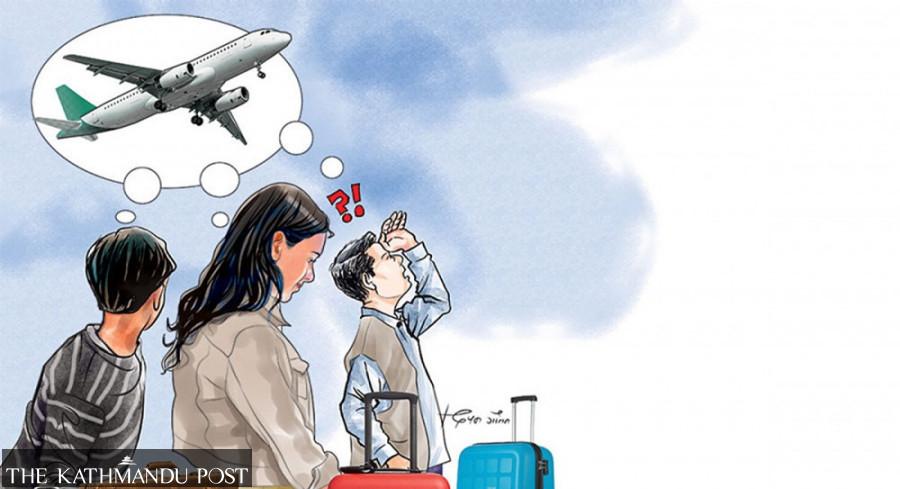National
Government ready to permit Nepali students to study in Russia
Following an interaction with the applicants, the education ministry got ready to allow students to pursue degrees in Russian universities with scholarships.
Post Report
The Nepal government is positive about allowing Nepalis to pursue university education in Russia if the students receive scholarships.
After consulting with the students who have been offered Russian government scholarships and their guardians, Bidya Bhattarai, the minister for education, science and technology, said the government can issue permits to such students with the guardians’ written consent.
On Thursday, the minister interacted with the recipients of the Russian government scholarship and their guardians following their continued pressure to issue no-objection certification (NOC) letters to study in the country that has been at war with Ukraine since February 2020.
The government-issued NOC is a must for youths studying abroad. “We had stopped issuing the permits as the war intensified between Russia and Ukraine, and it continues. Still, if the parents request for the permit, we will issue it,” Bhattarai said during the interaction.
All the students, backed by their guardians, unanimously requested that the NOC be issued. Among the 40 students who have received full scholarships to study in various Russian universities, 26, together with their guardians, were present for the interaction at the ministry. They argued that not issuing permits was barring the students from good opportunities of education.
“Most of all the universities where Nepalis want to study are prestigious. Studying there for free is a lifetime opportunity. We don’t want to miss it,” said Chandan Kumar Goit, who has been selected to study medicine at Pavlov First Saint Petersburg State Medical University in St Petersburg. “Russia is the world’s largest country. The ongoing war is not affecting the parts we are preparing to travel to.”
The 40 students have been selected to study medicine, engineering, business, or agriculture in various higher education institutions in 12 different regions of Russia.
“There are no threats in the place where my university is located,” said Anwar Alam, who has received a scholarship to study dentistry at Dagestan State Medical University. “I would request for the NOC as soon as possible so that we can assume our study on time.”
The academic session of most Russian universities started on September 1. They say there would be no problem if students arrive in the next two months, according to the students who attended the interaction at the ministry.
Authorities had stopped issuing the NOC after reports that the Nepalis who left for Russia on student visas had joined the Russian army. Several Nepali youths serving in the army have been killed in the fight against Ukraine.
At least 40 Nepali nationals have been confirmed dead in Russia’s fight against Ukraine. The Nepali embassy in Moscow is conducting DNA tests for more than 50 Nepali nationals killed in the fight, suggesting that the death toll could go higher.
Following pressure from students and guardians, the education ministry requested the Ministry of Foreign Affairs to suggest whether the universities offering the scholarship were safe. The foreign ministry confirmed that there was no threat.
At the interaction, Bhattarai said the ministry was working on policies to manage overseas studies. “Our attention has been drawn to the need to issue permits for study abroad only after proper prior information about the particular place,” she said. “It’s not just for Russia but for every country.”
Bhattarai added, “Also, it is high time that we thought about retaining our students here in the country and creating an environment for even foreign students to come to study here.”




 16.12°C Kathmandu
16.12°C Kathmandu














